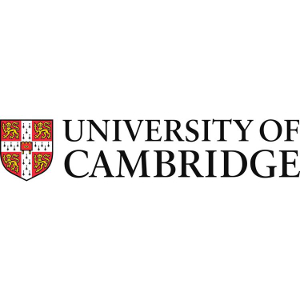
Our planet is always in the news, and so it should be: our lives are intricately linked to the behaviour of our natural environment and the resources that it grants us. How can one volcano in Iceland ground flights across Europe? What can ice-cores tell us about future climate change? What will happen if we store nuclear waste underground? How can we obtain precious metals required for technology with minimal impact on our planet? Is geothermal energy the solution to a carbon-zero world? Earth Sciences brings together Physics, Chemistry, and Biology, in the greatest natural laboratory of all – our planet, and draws evidence from its 4 billion year history.
Study with us:
The University of Cambridge has a long heritage of teaching Earth Sciences as part of the Natural Sciences Tripos, and our Department regularly features at the top of University rankings, including the Complete University Guide.
Our degree equips you with a broader scientific training than on offer at most other institutions, which makes Cambridge graduates highly sought after. Our graduates go on to work in wide ranging sectors, including environmental geology, green energy solutions, hazards management or even disaster risk reduction and reinsurance.
In first year, Natural Sciences students combine their Earth Sciences option with two other science choices and one Maths course. The first year Earth Sciences course is varied and designed to give you a dynamic grounding in the discipline; it includes:
- Plate tectonics and Earth structure.
- Volcanoes and igneous processes.
- Minerals and metamorphic rocks.
- Oceans, climate, and sediments.
- Palaeobiology and fossils.
- Earthquakes, tsunamis and other geohazards.
- Solar system, planetary and exoplanetary science.
A broad first year is followed with increasing specialisation in the second year, and the possibility of total specialisation in the third year. The flexibility of the Natural Sciences course means you can pursue your interests in Earth Sciences alongside other complementary scientific disciplines.
How we teach:
Our Department, embedded within the supportive framework of the collegiate system, prides itself on its friendly, vibrant community and excellent teaching and research facilities. During term time, students can expect three one-hour lectures and three one-hour practical classes each week – giving you the opportunity to put your learning into action.
Students also have weekly supervisions – small group tutorials with a graduate member of staff who is likely an expert in their field. Unique to Oxbridge, these intellectual discussions give you the chance to explore your subject more deeply, whilst testing your ideas and interests.
Field trips, both in the UK and oversees, are an integral part of the course. During the Easter vacation, we visit the Isle of Arran in Scotland, a small island packed with exciting and varied geology. Here you can step back in time, explore the deposits of Devonian rivers, Carboniferous swamps and Permian deserts, and walk through the roots of a Tertiary volcano.
Our Department’s research is multidisciplinary and world leading, with focuses on climate change, natural hazards, palaeontology, environmental science, planetary science and more. Through lectures, supervisions and seminars you can immerse yourself in discussions at the forefront of your discipline. We are also one of the few Earth Science Departments to be connected with a dedicated geology museum – The Sedgwick, which hosts more than 2 million rocks, minerals and fossils!
To see the varied research our lecturers do, have a look at these short vides:
For more information:
Take a look at the information for prospective undergraduates on our website
Find out more about our student society – The Sedgwick Club
Have a read of the Earth Sciences blog


